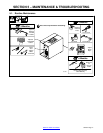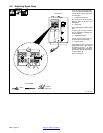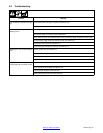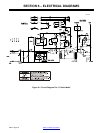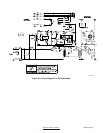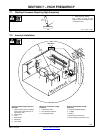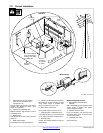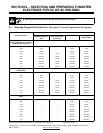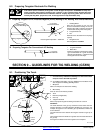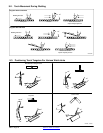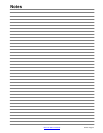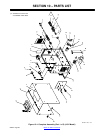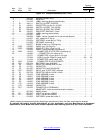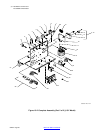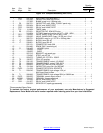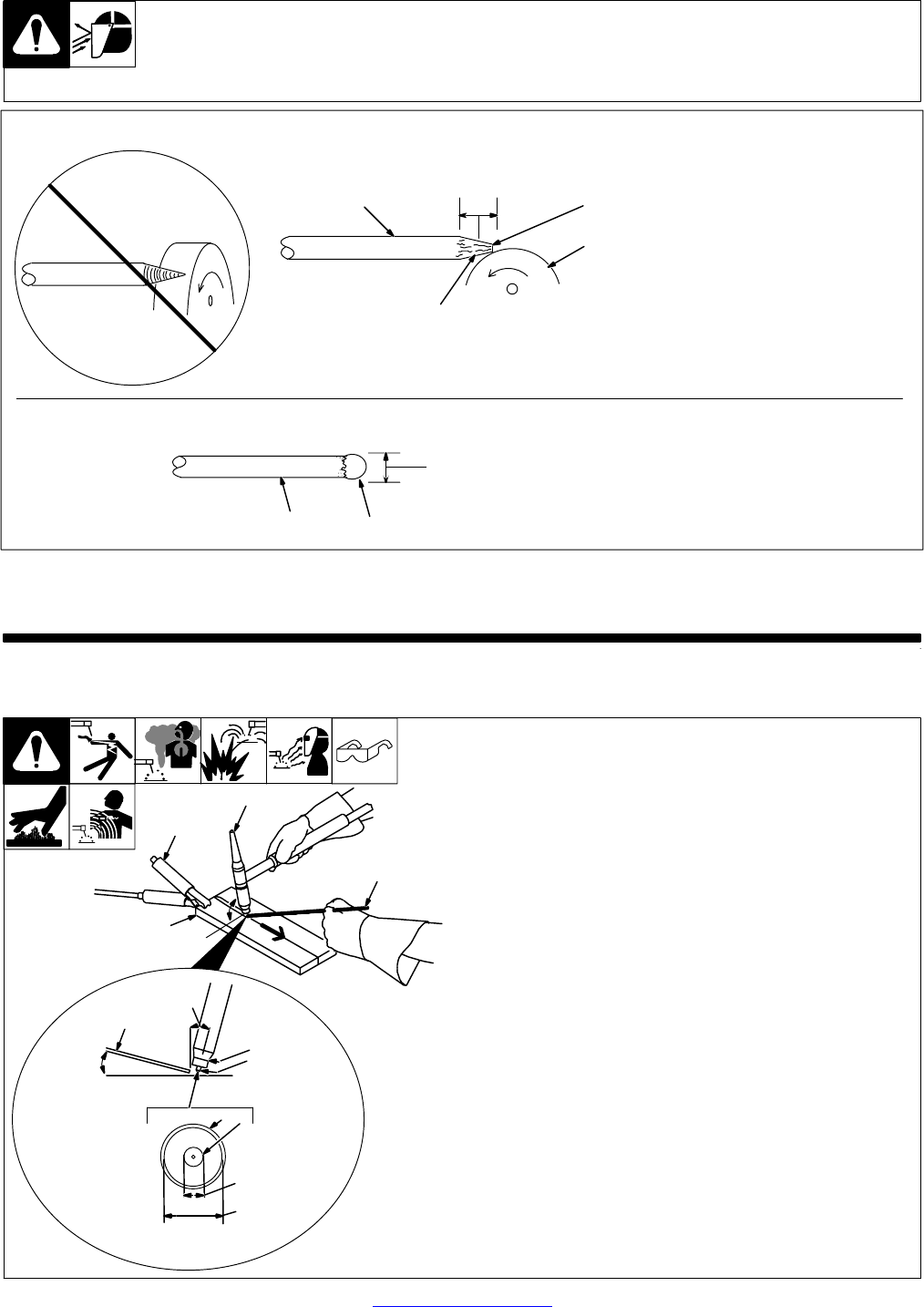
OM-611 Page 25
Return To Table Of Contents
8-2. Preparing Tungsten Electrode For Welding
Y Grinding the tungsten electrode produces dust and flying sparks which can cause injury and start fires. Use
local exhaust (forced ventilation) at the grinder or wear an approved respirator. Read MSDS for safety infor-
mation. Consider using tungsten containing ceria, lanthana, or yttria instead of thoria. Grinding dust from
thoriated electrodes contains low-level radioactive material. Properly dispose of grinder dust in an environ-
mentally safe way. Wear proper face, hand, and body protection. Keep flammables away.
A. Preparing Tungsten For DC Electrode Negative (DCEN) Welding Or AC Welding With Inverter Machines
Ideal Tungsten Preparation − Stable Arc
2-1/2 Times
Electrode Diameter
1 Grinding Wheel
Grind end of tungsten on fine grit, hard
abrasive wheel before welding. Do not use
wheel for other jobs or tungsten can become
contaminated causing lower weld quality.
2 Tungsten Electrode
3 Flat
Diameter of this flat determines amperage
capacity.
4 Straight Ground
Grind lengthwise, not radial.
1
3
4
1 Tungsten Electrode
2 Balled End
Ball end of tungsten by applying AC amper-
age recommended for a given electrode
diameter (see Section 8-1). Let ball on end of
the tungsten take its own shape.
B. Preparing Tungsten For Conventional AC Welding
1 − 1-1/2 Times
2
Electrode Diameter
Causes Wandering Arc
2
1
Wrong Tungsten Preparation
Radial Grinding
SECTION 9 − GUIDELINES FOR TIG WELDING (GTAW)
9-1. Positioning The Torch
Y Weld current can damage electronic parts in vehicles. Discon-
nect both battery cables before welding on a vehicle. Place work
clamp as close to the weld as possible.
. For additional information, see your distributor for a handbook on the
Gas Tungsten Arc Welding (GTAW) process.
1 Workpiece
Make sure workpiece is clean before welding.
2 Work Clamp
Place as close to the weld as possible.
3 Torch
4 Filler Rod (If Applicable)
5 Gas Cup
6 Tungsten Electrode
Select and prepare tungsten according to Sections 8-1 and 8-2.
Guidelines:
The inside diameter of the gas cup should be at least three times the
tungsten diameter to provide adequate shielding gas coverage. (For
example, if tungsten is 1/16 in diameter, gas cup should be a minimum of
3/16 in diameter.
Tungsten extension is the distance the tungsten extends out gas cup of
torch.
The tungsten extension should be no greater than the inside diameter of
the gas cup.
Arc length is the distance from the tungsten to the workpiece.
1
10−25°
10−15°
6
2
3
4
90°
4
5
3/16 in
1/16 in
6
5
Bottom View Of Gas Cup
Ref. 161 892



